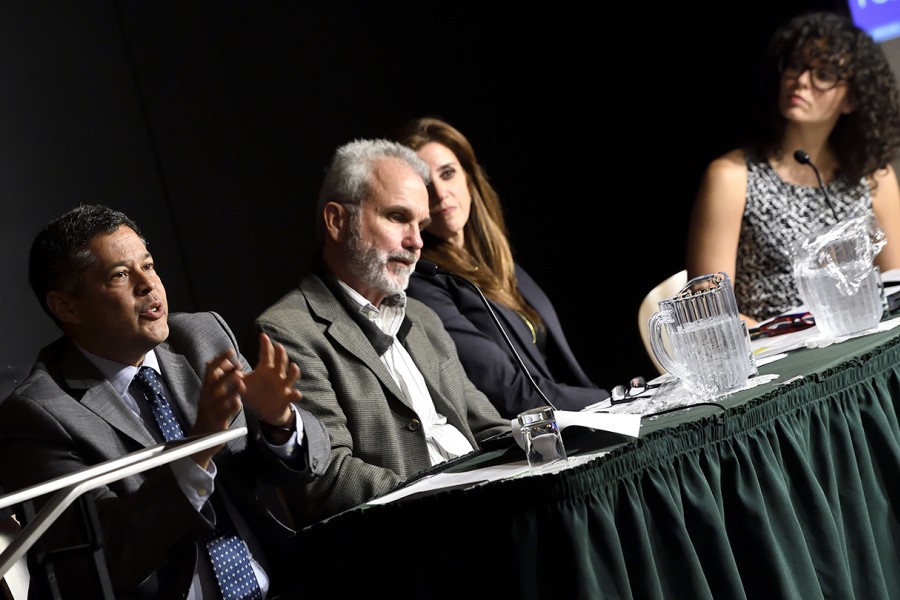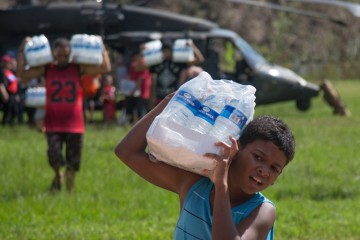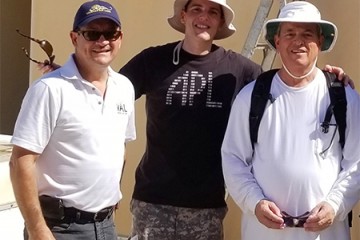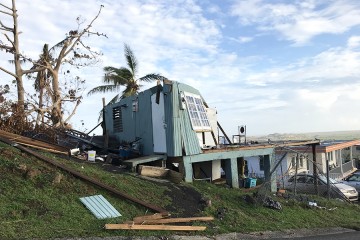When Hurricane Maria battered their home island in September, Puerto Ricans on the U.S. mainland activated immediately. At a Johns Hopkins panel discussion Tuesday that assessed Puerto Rico's recovery six months after the devastating storm, scholars described how Puerto Ricans in the diaspora ignited an wave of grassroots support through social media and personal favors, leading to mass deliveries of supplies to the island.
It's a "complete shift in the paradigm of emergency response," said Yale infectious disease specialist Marietta Vazquez, one of the panelists.
"What you have is just people, regular citizens, who were able to organize and establish an effective grassroots response that was timely and replicable," she said. "They were able to deliver life-saving supplies and medication … in a way that government officials and federal agencies could not do."
In the days following the hurricane, Vasquez launched Puerto Rico Rising Connecticut, which tapped into word-of-mouth connections to deliver 18,000 pounds of medicine and supplies, she said.
In Baltimore, Yonaira Rivera—a Bloomberg School of Public Health PhD candidate—helped found her own relief group, Puerto Rico Stands. Rivera served as moderator of Tuesday's panel, part of the JHU Forums on Race in America. The event also featured Juan Giusti-Cordero, a history professor at the University of Puerto Rico; and Antonio Trujillo, a professor of health economics at the Bloomberg School.
Their wide-ranging discussion touched on a number of topics.
How information spreads
In the telecommunications blackout during and immediately after the Sept. 20 storm, only one radio station was still transmitting on the island, becoming the lone media lifeline for Puerto Ricans.
The AM station, WAPA, took "desperate calls from persons who still had phone connections" and at one point delivered a life-saving warning of rising floodwaters, Codero said.
For Puerto Ricans who were not on the island, social media provided critical connections.
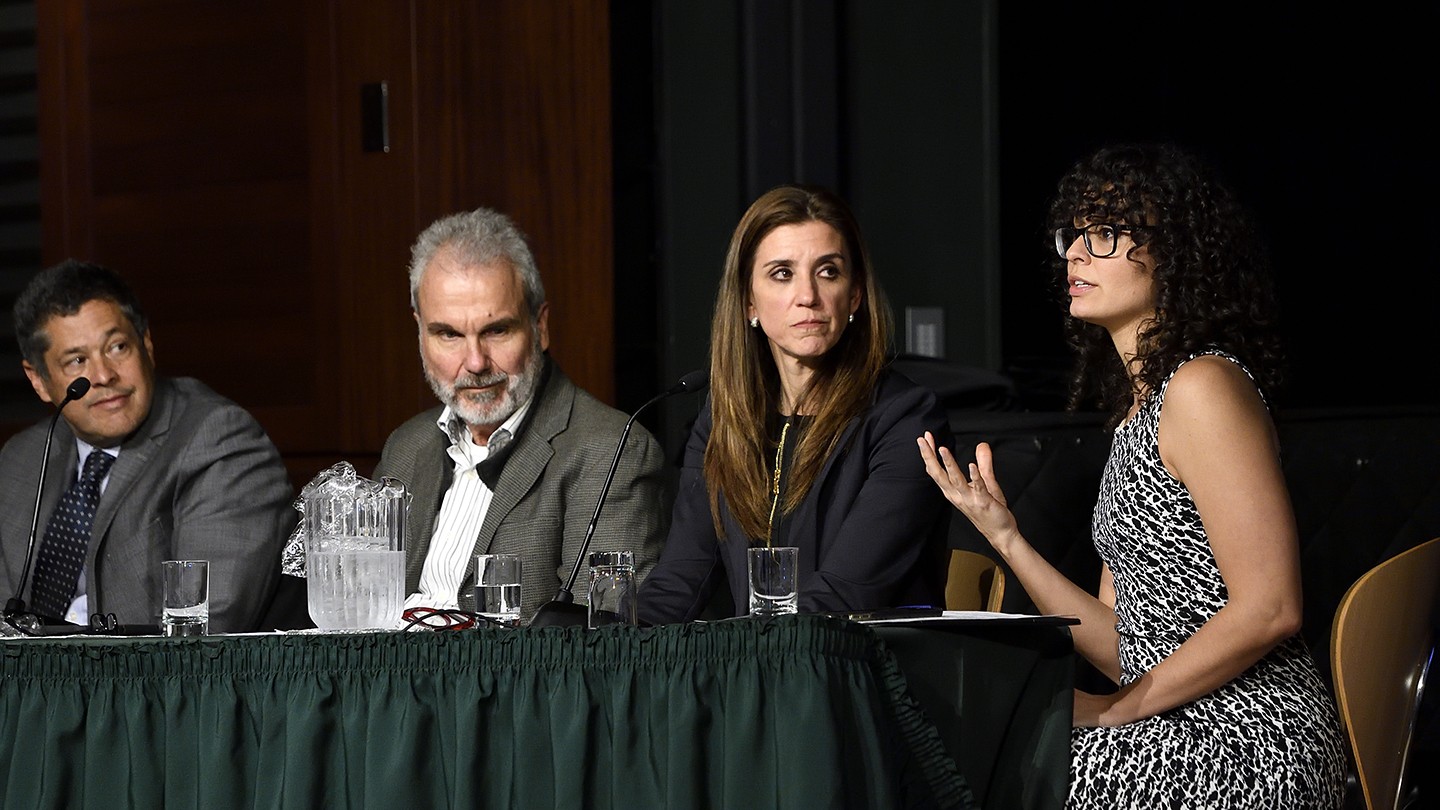
Image caption: Panelists (from left) Antonio Trujillo, Juan Giusti-Cordero, Marietta Vazquez, and Yonaira Rivera discussed challenges facing Puerto Rico during its recovery from Hurricane Maria, which made landfall in September
Image credit: Will Kirk / Johns Hopkins University
"Social media [was] unequivocally … instrumental in the way we were able to communicate," said Rivera, who used Facebook Live to track Maria's impacts. "We were watching."
Giusti-Cordero, speaking of the relief efforts that sprouted up on the mainland in the storm's wake, said the hurricane could be a groundbreaking case study for "the role of social media in disaster recovery and making available supplies."
Maria in context
Major hurricanes are a part of Puerto Rico's history, Giusti-Cordero said, noting that Maria was the 10th such storm of the past 200 years. He spoke of a string of especially damaging storms in the late 1920s to early 1930s, leading Puerto Rico to establish new government mechanisms for relief and reconstruction.
But the Category 4 storm caught everyone by surprise, panelists said. Giusti-Cordero said the local government was "as well-prepared for Maria as it was for a snowstorm" and called federal relief funds insufficient.
Puerto Rico's estimated $91 billion in losses add to a fragile economic mix of crippling debt and high unemployment rates on the island, Trujillo said.
Giusti-Cordero pointed to further complications in the territory's "colonial relationship" to the mainland U.S., which he said "creates its own problems with the colonial government," including corruption.
Public health impacts
In Maria's wake, pressing concerns include water safety, mitigating infectious disease, providing access to services, and addressing mental health issues, panelists said.
"Suicide ideation and attempts have skyrocketed in Puerto Rico since the storm," Rivera said. "There's a sense of despair among pretty much everyone, especially those who are lacking essential services."
Even before Maria, Puerto Rico was suffering from an "exodus of physicians," Vazquez said. Trujillo noted that some populations were already vulnerable, particularly the island's large number of elderly residents.
Displacement
For the thousands of Puerto Ricans who have sought refuge on the mainland U.S., there's a lack of coordination and resources, Vazquez said.
"Who runs the show?" she said of housing efforts. "It's local officials with nonprofits and human rights organizations, and it's not very organized, and we're all quite anxious about what's going to happen."
Giusti-Cordero noted that government housing vouchers are only temporary.
"They're offering return tickets" as the solution, he said.
Posted in Health, Politics+Society
Tagged disaster response, hurricanes, puerto rico




